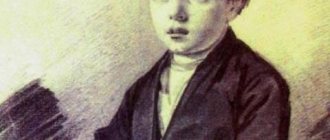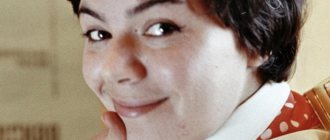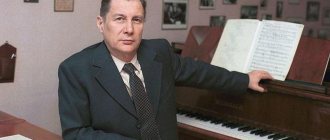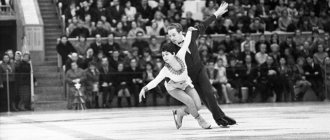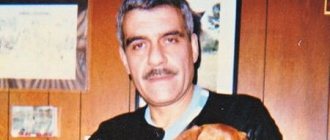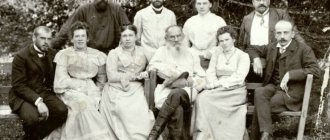“Glass Child” and student of the School of Law
Pyotr Tchaikovsky in his youth. Photo: biographe.ru
The Tchaikovsky family. From left to right: Pyotr Tchaikovsky at the age of 8, his mother Alexandra Andreevna, sister Alexandra (leaning on her mother’s knees), half-sister Zinaida, older brother Nikolai, younger brother Ippolit, sitting on the lap of his father, Ilya Petrovich Tchaikovsky. 1848. State Memorial Musical Museum-Reserve P.I. Tchaikovsky, Klin, Moscow region
Pyotr Tchaikovsky in his youth. Photo: classicalmusicnews.ru
Pyotr Tchaikovsky was born on May 7, 1840 into a noble family in Votkinsk, Vyatka province. The father of the future composer, mining engineer Ilya Tchaikovsky, was the director of a local factory, and his mother Alexandra Assier was a pianist. In addition to Peter, there were four more children in the Tchaikovsky family. To raise them, their parents sent a governess from St. Petersburg, the Frenchwoman Fanny Durbach. Pyotr Tchaikovsky studied well, his favorite subjects were history and literature.
“In class it was impossible to be more diligent and understanding; during recreation, no one invented more fun things to do; during general readings for entertainment, no one listened more attentively, and in the twilight of the holiday, when I gathered my chicks around me and took turns making me tell something, no one fantasized more beautifully... Everyone loved him, because they felt how he loved everyone . His impressionability knew no bounds, so it was necessary to treat him very carefully. Every little thing could offend him, hurt him. It was a glass child."
Fanny Durbach, based on the book “The Life of Pyotr Ilyich Tchaikovsky” by Modest Tchaikovsky
Even as a child, Pyotr Tchaikovsky began composing poetry, and then became interested in music. To develop the abilities of the future composer, his parents hired him a teacher - the former serf Maria Palchikova. Soon Tchaikovsky began to select by ear the plays and romances that were played in his home. His brother Modest Tchaikovsky recalled: “When he was forbidden to be at the instrument, he continued to play with his fingers on anything. One day, carried away by this silent strumming on the glass of the window frame, he got so excited that he broke it and seriously injured his hand.”
In 1848, the composer's father Ilya Tchaikovsky retired and moved with his family to Moscow and then to St. Petersburg. There, Pyotr Tchaikovsky was sent to the Imperial School of Law - his parents wanted him to receive a legal education. However, at the same time, the future composer continued to study music. Together with his mother, Tchaikovsky often attended ballets and operas at the St. Petersburg Bolshoi Theater and the Mariinsky Theater.
At the school, Tchaikovsky met and became friends with the poet Alexei Apukhtin. Together they published the magazine “Scholastic Bulletin”, where they published their poems and articles. The future composer read a lot - he subscribed to the Sovremennik magazine, bought books by Alexander Pushkin, Alexander Griboyedov and Mikhail Lermontov. In addition, at school he studied in the choir. When Gavriil Lomakin, who taught there, was ill, Tchaikovsky replaced him and gave music lessons to his classmates. At the same time, the father hired a new teacher for the future composer - professional pianist Rudolf Kündinger. Tchaikovsky recalled: “Every Sunday I spent an hour with him and made rapid progress in playing the piano.” He studied with Kündinger for about three years.
Education of the future composer and work in the civil service
The boy never had to study to become an engineer, unlike his older brother Nikolasha. In August of the same year, it was decided to take him from there and send him to St. Petersburg to the closed Imperial School of Law. On the twenty-second, while in St. Petersburg, Peter and his mother visited the theater, where Glinka’s “A Life for the Tsar” was being performed, which literally made a shocking impression on him. The school taught piano (Franz Becker) and there was a choir of Gabriel Lomakin.
In 1954, the kind and beloved mother contracted cholera and, despite all the efforts of the doctors, died, leaving behind an unfortunate husband and six young children, the eldest of whom Nikosha was only sixteen. Peter returns to school and also takes piano lessons from Rudolf Kündinger, but in 1958 his father gets involved in a dubious scam and loses absolutely all his fortune. However, all his previous merits were not forgotten; the family was given a government apartment and assigned to work at the Technological Institute. At the end of May 1859, the training was completed, and despite a clear aversion to jurisprudence, Pyotr Ilyich even composed a march and a song for the choir for the fiftieth anniversary of the educational institution, although he did not go to the celebration himself, because his first works were performed in his absence.
After studying, Tchaikovskaya was assigned to the First Department of the Ministry of Justice, where he handled the affairs of the peasantry. He worked hard, but also had fun and studied again, for example, the Italian language with his friend Luigi Piccioli, a real opera singer. In sixty-one, Tchaikovsky went abroad as a translator. On this tour he visited Brussels, Antwerp, Berlin, Paris, Hamburg, London and many other cities.
During this period, Peter's father suggests that he combine public service and music studies and even consults with his teacher. True, he replies that he has no special talent, and at twenty years old it is too late to start building a career as a musician. Later, teacher Kündinger will repent of his words and even write it down in his memoirs. However, his father sent Peter to the St. Petersburg Conservatory, where he became one of the first students of the composition course. As his graduation work, Tchaikovsky wrote his famous cantata “To Joy,” performed in December 1866. Already in the seventieth year he received a diploma of “free artist”.
“He was no longer an official, he was a musician”
Yan Tsionglinsky. Portrait of Pyotr Tchaikovsky (fragment). 1894. Smolensk State Museum-Reserve, Smolensk
Daniil Chashechkin. Portrait of Pyotr Tchaikovsky (fragment). 2020. Private collection
Alexander Khristinenko. Portrait of Pyotr Tchaikovsky (fragment). 1999. Private collection
In 1859, Tchaikovsky graduated from the Imperial School of Law. His certificate showed excellent grades in almost all subjects, and the future composer was hired by the Ministry of Justice. He continued to communicate with his fellow students at the school, among whom were many representatives of high society. Tchaikovsky visited their salons and musical evenings.
In 1861, Ilya Tchaikovsky’s friend Vasily Pisarev invited the future composer to travel with him to Europe as a secretary and translator. This trip was Tchaikovsky’s first, but later he wrote to his sister: “If I have done some colossal stupidity in my life, then this is my trip. Do you remember Pisarev? <…> Until now I had no idea that there were such fabulously vile individuals in the world; Now it’s not difficult for you to understand what it was like for me to spend three months inseparable from such a pleasant companion.” . During his travels, the composer visited Germany, France and the UK.
At home, Tchaikovsky returned to work in the Ministry of Justice. He was not promoted in the service, although the composer’s brother Modest Tchaikovsky recalled: “He not only worked hard at Malaya Sadovaya, but brought work home and wrote reports at night.” On the advice of his father, Tchaikovsky combined work and music studies. From September 1861, he attended classes with Anton Rubinstein at the Russian Musical Society (RMS), and in 1862 he became one of the first students at the newly opened St. Petersburg Conservatory. Tchaikovsky had no success in his service at this time. The position of official of special assignments, which the composer was counting on, went to another ministry employee, and in 1863 he quit and concentrated on creativity.
“Now he was no longer an official, he was a musician: his dismissal from a regular position in the Ministry of Justice happened unnoticed - he simply stopped going to the department. By the beginning of the second year, he had fifty rubles a month worth of lessons. His father's financial affairs were getting worse and Tchaikovsky could not hope for his help. Sometimes he had to run on foot from Kolomna to Okhta, his smart frock coats were worn out; some of his former acquaintances on Nevsky stopped recognizing him, perhaps intentionally, but, however, probably sincerely: he grew his hair long and wore a wide-brimmed hat.”
Nina Berberova, Tchaikovsky
Pyotr Tchaikovsky, Thunderstorm Overture
Many relatives did not accept Tchaikovsky's decision. The composer, his father and younger brothers had to move to a cheaper apartment and save on clothes. Tchaikovsky wrote to his sister: “Don’t think that I imagine becoming a great artist, I just want to do what my vocation leads me to; whether I be a famous composer or a poor teacher, my conscience will be calm.” At the conservatory, he was one of the best students: together with another student of the institution, Herman Laroche, he played Mikhail Glinka’s opera “A Life for the Tsar” with four hands, composed his first works - the overture “The Thunderstorm” based on the play by Alexander Ostrovsky, a cantata based on Friedrich Schiller’s ode “To joy", the play "Characteristic Dance".
Laroche wrote to Tchaikovsky: “You are the greatest musical talent of modern Russia. I see in you the greatest, or better yet, the only hope for our musical future.” The composer graduated from the conservatory in 1865 with the highest award - a large silver medal and the title of “free artist”.
Childhood and youth
The famous composer was born on April 25, 1840. The place of his birth was the town of Votkinsk in Udmurtia. Tchaikovsky's father, Ilya Petrovich, worked as the director of the enterprise. He also excelled in research activities. Little Peter was the heir of one of the most famous Ukrainian families. My father’s ancestors were Cossacks, and my mother’s were French.
According to Tchaikovsky himself, his relatives loved music and even organized modest concerts at home. However, none of his relatives showed any special talent in this area, although the boy’s mother was good at the piano and had an outstanding voice. Peter's childhood years were spent in a musical atmosphere. In addition to the concerts held at their home, every day he heard the most beautiful melodies of peasants heading to rest after a hard day of work. All this can be learned from the biography of Tchaikovsky. It is advisable for all lovers of his work to remember a summary and main facts from the composer’s life.
At the age of 5, the boy began to show his interest in music for the first time. He mastered various instruments quite early and learned to understand notes. Tchaikovsky especially liked to record on paper his feelings that overwhelmed him in the process of enjoying music. When the boy was 10 years old, the family moved to the town of Alapaevsk, but lived there for only about six months, subsequently moving to St. Petersburg.
The parents sent the child to receive knowledge at an elite institution called the School of Law. Tchaikovsky needed to spend two years outside his native country. The fact is that it was possible to enroll in education only after reaching 12 years of age. The boy was very upset by the separation from his mother, Alexandra Andreevna, but he endured everything steadfastly and returned to St. Petersburg to enter this institution.
Immediately after enrolling in the school, Peter began to demonstrate a serious passion for musical creativity. The academy often held additional classes, which he carefully attended, making reports and playing music. His teachers considered him an excellent improviser and a young man with a talent for playing the piano.
At the age of 15, the young man became even more interested in music, began taking lessons from the famous teacher L. Piccioli, and then he found another mentor - R. Kündiger, who really gave him a lot. In 1859, Tchaikovsky received a diploma and got a job at the Ministry of Justice. When he has a few unoccupied hours, he goes to operas and performances; most of all, he is fascinated by the works of Mozart and Glinka. He is not interested in politics or current news - he is completely immersed in creativity.
Teacher and music critic
Alexander Lopukhov. Portrait of Pyotr Tchaikovsky (fragment). 1981. Private collection
Anatoly Tumbasov. Portrait of Pyotr Tchaikovsky (fragment). 1950. Private collection
Grigory Svetlitsky. Portrait of Pyotr Tchaikovsky (fragment). 1938-1945. Memorial House-Museum of Grigory Svetlitsky, Kyiv, Ukraine
In early 1866, at the invitation of Nikolai Rubinstein, brother of composer Anton Rubinstein, Tchaikovsky moved from St. Petersburg to Moscow to teach at the newly created music courses, which were soon transformed into the Moscow Conservatory. He had about ninety students annually.
Tchaikovsky was a demanding teacher and gave them a lot of tasks. Professor of the Moscow Conservatory Nikolai Kashkin recalled: “Impeccable integrity, intelligence and knowledge of the matter involuntarily forced him to be a good teacher, especially for the more talented students, he tried by all means to encourage hard, persistent work.”
Pyotr Tchaikovsky, First Symphony (“Winter Dreams”), part I “Dreams on a Winter Road”
Pyotr Tchaikovsky, First Symphony (“Winter Dreams”), part II “Gloomy Land, Foggy Land”
Pyotr Tchaikovsky, First Symphony (Winter Dreams), movement III
Pyotr Tchaikovsky, First Symphony (“Winter Dreams”), movement IV, finale
At the same time, Tchaikovsky was engaged in creativity: he composed the first symphony “Winter Dreams”. He played it in St. Petersburg at a concert of the Russian Musical Society in Moscow in early 1868. The public greeted the symphony with approval, although the composer's teacher Anton Rubinstein criticized it.
Soon, at the Aristocratic Club, Tchaikovsky met and became friends with playwright Alexander Ostrovsky. While still studying at the conservatory, the composer wrote an overture based on his play “The Thunderstorm”. Now he wanted to create an opera based on the same work, and he needed a libretto. Ostrovsky refused: Vladimir Kashperov was already working on an opera based on The Thunderstorm.
However, the playwright suggested that Tchaikovsky write music based on another work - the comedy “The Voevoda, or a Dream on the Volga.” Ostrovsky himself wrote the libretto for this opera. The premiere of “The Voyevoda” took place at the Bolshoi Theater in 1869. The opera was well received by the public, and critics wrote that the music and the libretto were poorly combined. The composer destroyed almost the entire score of the opera.
Pyotr Tchaikovsky, Romeo and Juliet Overture
During these same years, Tchaikovsky met the critic Vladimir Stasov and members of the “Mighty Handful” association. On the advice of Mily Balakirev, he began to write program music - instrumental works without words. For the new overture, the composer took the plot of William Shakespeare's tragedy Romeo and Juliet. Tchaikovsky finished it quickly - in two months. The composer first performed “Romeo and Juliet” in 1870 at the next concert of the Russian Musical Society.
“There is no doubt that the music was created with extraordinary inspiration and enthusiasm. In the overture, for the first time, the main themes of Tchaikovsky’s future work sounded: the psychological drama of unfulfilled love and the unsatisfied youthful passion in contact with the absorbing theme of death.”
Alexander Poznansky, “Tchaikovsky” (book from the “Life of Remarkable People” series)
Pyotr Tchaikovsky, play "Humoresque"
Pyotr Tchaikovsky, play "Nocturne"
In 1871, Tchaikovsky again visited abroad. The composer was invited on the journey by his student from the Moscow Conservatory, Vladimir Shilovsky. They visited Germany and Italy, where Tchaikovsky wrote two plays - Humoresque and Nocturne. The composer dedicated them to Shilovsky.
At this time, Tchaikovsky was experiencing financial problems. To earn money, he began writing for the newspapers “Russian Vedomosti” and “Modern Chronicle”. The composer's articles on musical works were popular and controversial. The composer worked in newspapers until 1875.
Not Tchaikovsky Tchaikovsky
Pyotr Ilyich, like no other composer, has works that officially have 2 editions - one by the author, the other with someone else's edits. Moreover, the changes made are significant. It is known that today, due to the established performing tradition, in some works it is often not entirely Tchaikovsky that sounds. For example, “Variations on a Rococo Theme” for orchestra and solo cello.
There are not many concert works for traditionally “orchestral” instruments; any instrumentalist dreams of showing the beauty of the sound of his instrument separately from the orchestra. In 1876-77 “Variations” were born. This was a long-awaited gift for the Moscow cellist Wilhelm Fitzhagen, a close friend of the composer, and also the first cellist of the Russian Musical Society. He participated in all premieres of Tchaikovsky's music as a soloist and performer of the first part. The main trusted musician of Pyotr Ilyich.
The premiere of “Variations” took place in November 1877, it took place without Tchaikovsky, who at that moment was abroad rehearsing and performing his other works. After the premiere, Fitzenhagen took the scores to Tchaikovsky's publisher Peter Jurgenson with his edits. So he completely removed 1 of the 8 variations, swapped some of them and changed the code. In this form, the notes went to print.
The changes, in the opinion of “editor” Fitzenhagen, allowed the most virtuosic part of the work to be placed in the finale, where he could show off his performing skills. Pyotr Ilyich toured a lot at that time and did not respond to the “editor’s” letters. But not because he agreed with the editors. And soon there was no one even to object - Nikolai Vasilyevich died. A few more years later - and Pyotr Tchaikovsky himself.
For many years, the confusion with the editors remained unknown. During this time, artists became accustomed to performing the edited version. It is in this version that, starting in 1962, “Variations on a Rococo Theme” becomes a mandatory work in the 3rd round of the competition. Tchaikovsky. The last 3 dozen bars are technically very difficult for all performers; it is almost impossible to play them cleanly. But long practice of performing this particular musical version created a peculiar aura of virtuosity and special complexity in the work, which is not accessible to every performer. Now, if someone wants to perform it in the author’s version, they will immediately be recognized as cowardly or lacking in technical skills.
"The lovely music of Tchaikovsky"
Alexey Mozhaev. Portrait of Pyotr Tchaikovsky (fragment). 1957. Private collection
Nikolay Kuznetsov. Portrait of Pyotr Tchaikovsky (fragment). 1893. State Tretyakov Gallery, Moscow
Sergey Markov. Portrait of Pyotr Tchaikovsky (fragment). 2020. Private collection
Pyotr Tchaikovsky, opera "The Oprichnik", introduction
Pyotr Tchaikovsky, Second Symphony, “Little Russian”
In the early 1870s, Tchaikovsky worked on a new opera, The Oprichnik, based on the tragedy of the same name by Ivan Lazhechnikov. The composer finished the work by 1872, but for several more years he could not achieve its premiere at the Mariinsky Theater. As a result, he had to come to St. Petersburg. There he met with members of the “Mighty Handful” and performed the “Second Symphony” at one of their meetings. Vladimir Stasov approved the work and suggested that Tchaikovsky compose another symphonic fantasy, and take its plot from literature - the works of Shakespeare. The composer wrote a work based on the play “The Tempest”. The premiere of the symphonic fantasy at the new concert of the Russian Musical Society was a great success. For the work, Tchaikovsky was awarded a laurel wreath and a silver cup.
Pyotr Tchaikovsky, cycle “Seasons”, “January. At the fireplace"
Pyotr Tchaikovsky, cycle “Seasons”, “February. Maslenitsa"
Pyotr Tchaikovsky, cycle “Seasons”, “March. Song of the Lark"
Pyotr Tchaikovsky, cycle “Seasons”, “April. Snowdrop"
Pyotr Tchaikovsky, cycle “Seasons”, “May. White Nights"
Pyotr Tchaikovsky, cycle “Seasons”, “June. Barcarolle"
Pyotr Tchaikovsky, cycle “Seasons”, “July. Song of the mower"
Pyotr Tchaikovsky, cycle “The Seasons”, “August. Harvest"
Pyotr Tchaikovsky, cycle “Seasons”, “September. Hunting"
Pyotr Tchaikovsky, cycle “Seasons”, “October. Autumn Song"
Pyotr Tchaikovsky, cycle “Seasons”, “November. On the troika"
Pyotr Tchaikovsky, cycle “Seasons”, “December. Christmas time"
In April 1874, The Oprichnik was staged for the first time at the Mariinsky Theater. However, critics once again found shortcomings in Tchaikovsky's work. Cesar Cui believed that the opera was “poor in ideas” and written “without a single happy inspiration.” Nevertheless, already in the same year “The Oprichnik” was staged in Odessa and then in Kyiv. Tchaikovsky himself came to this city for the premiere. He later recalled: “The opera was a success, at least the noise was terrible and the ovation was the most flattering, which I never expected. A huge crowd of students accompanied me from the theater to the hotel. I was quite happy." In 1875, “The Oprichnik” was staged in Moscow at the Bolshoi Theater, and soon the government banned the opera - the censors found revolutionary thoughts in it. In the same year, at the request of the publisher of the Nouvellist magazine N.M. Bernard, Pyotr Tchaikovsky wrote the piano cycle “The Seasons”.
Pyotr Tchaikovsky, opera "Eugene Onegin", introduction
Tchaikovsky's next major work was the opera Eugene Onegin, which he began working on in 1877. The idea was suggested to the composer by singer Elizaveta Lavrovskaya, and the libretto was written by Konstantin Shilovsky. Tchaikovsky worked on the opera on his Glebovo estate near Moscow.
“Even if my opera is not stagey, even if there is little action in it, but I am in love with the image of Tatyana, I am fascinated by Pushkin’s poems and I write music on them because I am drawn to it. I completely immersed myself in composing the opera. It is also true that it is impossible to imagine a more favorable environment for writing than the one I am using here. I have a whole separate, superbly furnished house at my disposal; no one, not a single human soul <...> appears to me when I am busy, and most importantly, I have a piano, the sounds of which, when I play, again do not reach anyone.”
Pyotr Tchaikovsky, from a letter to his brother Modest Tchaikovsky
In 1877, the composer met a philanthropist, the widow of a railway industrialist, Nadezhda von Meck. She began to finance Tchaikovsky’s travels to Europe and paid him six thousand rubles annually. This amount was twice the salary at the Moscow Conservatory, and he soon left his job and focused on creativity. The composer held his last lesson in October 1878, and recommended his student Sergei Taneyev to replace the professor.
Pyotr Tchaikovsky, Fourth Symphony, movement I
Tchaikovsky again went abroad and settled in Switzerland. There he finished the opera Eugene Onegin and began writing the Fourth Symphony. In a letter to von Meck, the composer said: “Never, not for one second, while working, will I forget that you give me the opportunity to continue my artistic calling.” Tchaikovsky created his work under the influence of Ludwig van Beethoven's Fifth Symphony. Like Beethoven, the composer reflected on the collision between man and fate. In 1878 in Moscow, Nikolai Rubinstein performed the symphony at a concert of the Russian Musical Society, and soon the premiere of Eugene Onegin was a success. The Moskovskie Vedomosti newspaper wrote that “Tchaikovsky’s lovely music is worthy of Pushkin’s lovely poems.”
Pyotr Tchaikovsky, ballet “Swan Lake”, “Dance of the Little Swans”
Pyotr Tchaikovsky, ballet “Swan Lake”, “Swans Are Flying”
Pyotr Tchaikovsky, opera "The Maid of Orleans", introduction
Pyotr Tchaikovsky, fantasy "Italian Capriccio"
Pyotr Tchaikovsky, Overture "1812"
Since the late 1870s, Tchaikovsky's works have been played not only in Russia, but also abroad - in France and the USA. The composer began giving concerts in Europe. At the same time, he worked on new works - the ballet "Swan Lake", the opera "The Maid of Orleans", the fantasy "Italian Capriccio". In 1880, Tchaikovsky composed the solemn overture “1812” in memory of the victory over Napoleon, for which he received the Order of St. Vladimir, IV degree, from the Russian government.
In the 1880s, Tchaikovsky traveled around Europe, attended concerts by Edvard Grieg, Hans von Bülow, Arthur Nikisch and other composers, with whom he began to correspond. His fame in Russia was growing at this time. In 1885, Tchaikovsky became a member of the board of directors of the Russian Musical Society and headed its Moscow branch. There the composer could help aspiring musicians and select works for RMO concerts.
Pyotr Tchaikovsky, opera "Cherevichki", introduction
Pyotr Tchaikovsky, opera "The Enchantress", introduction
Pyotr Tchaikovsky, Manfred Symphony
That same year, Tchaikovsky bought the Maidanovo estate near the town of Klin near Moscow. In his diary, the composer wrote: “The closer you move to old age, the more vividly you feel the pleasures of being close to nature.” In Maidanovo, the composer wrote the operas “Cherevichki” and “The Enchantress” and the symphony “Manfred”. Tchaikovsky lived alone and did not receive petitioners. Only close friends came to visit the composer - Nadezhda von Meck and music publisher Peter Jurgenson.
Career blossoming
At the Moscow Conservatory, Tchaikovsky showed himself to be an excellent teacher. In addition, he put a lot of effort into the quality organization of the educational process. Since there were few worthy textbooks for his students at that time, the composer began translating foreign literature and even creating his own teaching materials.
However, in 1878, Pyotr Ilyich, tired of being torn between teaching and his own creativity, left his position. His place was taken by Sergei Taneyev, who became Tchaikovsky’s most beloved student. A wealthy patron, Nadezhda von Meck, helped Tchaikovsky make ends meet. Being a wealthy widow, she idolized the composer and annually provided him with subsidies in the amount of 6,000 rubles.
Pyotr Tchaikovsky
It was after moving to Moscow that the real rise of Pyotr Ilyich Tchaikovsky’s creative career began and his significant growth as a composer occurred. At this time, he met the composers participating in the creative community “The Mighty Handful”. On the advice of Mily Balakirev, the head of the commonwealth, Tchaikovsky in 1869 created a fantasy overture based on Shakespeare's Romeo and Juliet.
In 1873, Pyotr Ilyich wrote another of his famous works - the symphonic fantasy “The Tempest”, the idea for which was suggested to him by the then authoritative music critic Vladimir Stasov. Around the same time, Tchaikovsky began to travel again, gaining inspiration abroad and using the images imprinted in his memory to form the basis of his subsequent creations.
In the 1870s, the composer wrote such works as the ballet “Swan Lake”, the opera “The Oprichnik”, the Concerto for Piano and Orchestra, the Second and Third Symphonies, the fantasy “Francesca da Rimini”, the opera “Eugene Onegin”, the piano cycle “The Times” of the year" and many others. In the 1880-1890s, Pyotr Tchaikovsky traveled abroad even more often than before, and in the vast majority of cases, as part of concert trips.
During such trips, the musician met and became friends with many musicians from Western Europe: Gustav Mahler, Arthur Nikisch, Edvard Grieg, Antonin Dvorak and others. The composer himself acted as a conductor during the concerts. In the early 1890s, Tchaikovsky even managed to visit the USA. There, stunning success awaited him during a concert where Pyotr Ilyich conducted his own works. Written at the time of creative maturity, they no longer raised any doubts about the composer’s talent.
Tchaikovsky spent his last years before his death in the vicinity of the town of Klin near Moscow. There, he agreed to open a school, dissatisfied with the quality of life of local peasants, and donated money for its maintenance. In 1885, he helped Klinov residents fight a fire that burned several dozen houses in the city.
During this period of his life, the composer wrote the ballet “The Nutcracker”, the opera “The Queen of Spades”, the overture “Hamlet”, the opera “Iolanta”, and the Fifth Symphony. At the same time, the international recognition of Pyotr Ilyich’s talent was confirmed: in 1892 he was elected a corresponding member of the Academy of Fine Arts in Paris, and in 1893 an honorary doctor of the University of Cambridge.
Tchaikovsky died on November 6, 1893 from cholera. He was buried in the Kazan Cathedral and buried in the Necropolis of Masters of Arts.
Personal life: “I can’t live without you”
Pyotr Tchaikovsky. Photo: gq.ru
Pyotr Tchaikovsky with his brothers. Photo: gq.ru
Pyotr Tchaikovsky with his wife Antonina Milyukova. 1877. State Memorial Musical Museum-Reserve P.I. Tchaikovsky, Klin, Moscow region
In 1868, Pyotr Tchaikovsky met the French opera singer Desiree Artaud, who came on tour to Russia that year. For her, the composer composed several romances and a piece for piano. He wrote to Brother Modest: “Ah! Modinka <…> if you only knew what a singer and actress Artaud is! Never before have I been under such a strong charm of an artist as this time. <…> How you would admire her gestures and the grace of her movements and poses!” Tchaikovsky wanted to marry Artaud, but her parents opposed the wedding. The composer and singer broke up and no longer communicated.
Tchaikovsky's only wife was Antonina Milyukova, a student at the Moscow Conservatory. They met in 1872 at one of the musical evenings. Milyukova sent Tchaikovsky letters with declarations of love.
“Will you really stop corresponding with me without even seeing me once? No, I’m sure that you won’t be so cruel!.. I’ll be ready to throw myself on your neck and kiss you, but what right do I have to do that? You may take this as impudence on my part... I cannot live without you, and therefore I may soon commit suicide. So let me look at you and kiss you so that in the next world I will remember this kiss. Goodbye. Yours forever A.M.”
Antonina Milyukova, from letters to Pyotr Tchaikovsky
Tchaikovsky and Milyukova married in 1877. The news of the wedding delighted the composer’s father: “I crossed myself and even jumped for joy. God bless! God bless you!!!" However, the composer and singer soon broke up. They never finalized the divorce, but they stopped living together.
Personal life
There are many photographs preserved where Pyotr Tchaikovsky is captured in a more than decent manner with his male friends. Even during his lifetime, the composer's orientation became the subject of speculation: some accused the musician of being a homosexual. It was assumed that his men (men for whom he had platonic affection) were Joseph Kotek, Vladimir Davydov and even brothers Alexey and Mikhail Safronov.
Pyotr Tchaikovsky with Joseph Kotek (left) and Vladimir Davydov (right)
It is difficult to judge whether there is reliable evidence that the composer loved men. His connections with the individuals mentioned above could well have been simply friendly. Be that as it may, there were also women in Tchaikovsky’s life, although some researchers claim that this was the composer’s way of trying to hide the fact that he was gay.
Pyotr Tchaikovsky with his wife Antonina Milyukova
Thus, the failed wife of Pyotr Ilyich was the young French prima donna Artaud Desiree, who preferred the Spaniard Marian Padilla to him. And in 1877, Antonina Milyukova, who was eight years younger than her newly-made husband, became his official wife. However, this marriage lasted only a few weeks, although Antonina and Peter never officially divorced.
It is worth recalling his connection with Nadezhda von Meck, who admired the composer’s talent and supported him financially for many years.
Moving
In 1848, the whole family went to Moscow, the reason was the retirement of Ilya Petrovich, who wanted to go to frequent service. The Tchaikovskys did not live in the capital for so long; literally a few months later they were expected to move again. This time - to St. Petersburg. There, the three sons of Ilya Petrovich went to study at the Schmelling boarding school. In St. Petersburg, the future composer continued his music studies. There he learned what ballet, opera and a symphony orchestra were. At that time, Peter fell ill with measles, but after his recovery he had seizures from time to time. A year later, the eldest son Nikolai went to the Institute of the Corps of Mining Engineers, and the rest of the family returned to their homeland, to the Urals. This time the city of Alapaevsk became the place of residence. There, Ilya Petrovich was offered the position of head of the plant. Governess Fanny left the engineer's family, and a new teacher, Anastasia Petrova, was hired to teach Peter. After the move, there was an addition to the Tchaikovsky family - Alexandra Andreevna gave birth to twins Modest and Anatoly.
Ministry of Justice
In 1859, having successfully graduated from college with the rank of titular councilor, Pyotr Ilyich entered service in the Ministry of Justice.
He is entrusted with managing the affairs of the peasants. In his free time, he has a lot of fun in the company of his sister, brother, cousin and their guests. He devotes a lot of time to visiting the opera house, studying Italian, adding it to his knowledge of French and German, which he is fluent. To his indescribable joy, an acquaintance of his father invites him to go abroad for three months in 1861 as a secretary.
early years
The Tchaikovsky family had four children. Pyotr Ilyich had an older brother Nikolai, a younger Ippolit and a younger sister Alexandra. Not only the owners of the mansion lived in the huge Tchaikovsky house. Relatives of Tchaikovsky's father also settled here. The children were educated and raised by a French-born governess, Fanny Durbach. Over her many years of work and devotion to the Tchaikovskys, she quickly became practically a member of the family. Not a single day in the house was complete without music. Ilya Petrovich played the flute, and Alexandra Andreevna played the piano and harp. In the evenings, mother loved to sit down at the instrument and often performed romances. Despite the fact that governess Fanny had no musical education, music also attracted her. In the house there was a mechanical organ and a piano, on which Pyotr Ilyich studied musical literacy. In addition to music, the younger Tchaikovsky gravitated towards poetry. He wrote short poems in French. In addition to music and poetry, Peter was fascinated by history, and he was especially interested in the personality of Louis the Seventh. Tchaikovsky carried his love for this historical figure throughout his life. The biography of composer Tchaikovsky on Wikipedia is filled with interesting facts, which we will examine further.
Studying at the conservatory
Tchaikovsky’s creative biography on Wikipedia begins with his studies in St. Petersburg. Everything changed dramatically when a new conservatory opened in the city under the leadership of Anton Rubinstein. Tchaikovsky firmly intended to study at this conservatory, and he succeeded. Peter became one of the first students in the composition class. Soon, despite financial problems, Tchaikovsky quit government service and devoted himself entirely to creativity. The composer's diploma work was the cantata “To Joy”. However, the musicians did not appreciate the creation at its true worth. Influential critics called Tchaikovsky a weak composer. However, negative criticism did not affect Pyotr Ilyich in any way; he graduated from the conservatory with a silver medal and excitedly began looking for work. In 1866, Tchaikovsky moved to the capital, where he became a professor at the Moscow Conservatory.
Creative activity
Tchaikovsky Pyotr Ilyich wrote his first works while teaching at the conservatory. Without interrupting his teaching activities, he created a number of outstanding compositions belonging to various genres of music. The first decade in his biography is one of the most fruitful periods, Tchaikovsky wrote the opera “The Oprichnik”, music for the fairy tale “The Snow Maiden”, a number of symphonies, and the First String Quartet. At the same time, the opera Ondine was created. Unfortunately, the musical work was never presented to the audience, but a small part of it has been preserved and is known to contemporaries as “Swan Lake”.
In 1878, the composer stopped his teaching activities and, having refused his position at the conservatory, devoted himself entirely to creativity. At the end of the next decade, he also tried himself as a conductor. The performances of the orchestras conducted by Pyotr Ilyich Tchaikovsky were a great success both at home and abroad.
